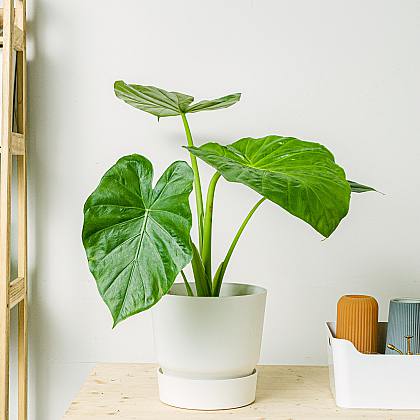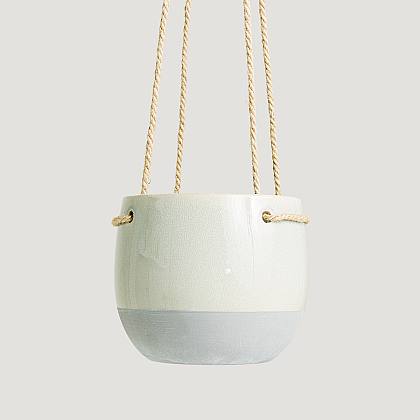Insect humus: a natural and balanced fertilizer for your plants
Insect humus: a natural and balanced fertilizer for your plants. Did you know that there is a fertilizer that comes from insects? Yes, that's right! And don't...
Insect humus: a natural and balanced fertilizer for your plants. Did you know that there is a fertilizer that comes from insects? Yes, that's right! And don't worry, you don't have to go looking for bugs out there to do it. Insect humus is a sustainable and eco-friendly solution that is revolutionizing the way we fertilize our plants. In this article, you will discover all the benefits of this powerful fertilizer, how to obtain and use it correctly, and the positive impact it has on the environment. In addition, you will be able to learn about success stories of gardeners who have used insect humus and obtained amazing results. Get ready to enter the fascinating world of insect hummus!
The Mighty Insect Humus: A Sustainable Solution
The Mighty Insect Humus: A Sustainable Solution
If you're a plant lover looking for a sustainable way to nourish your plants, insect humus is the answer you've been waiting for. This amazing natural fertilizer is not only beneficial for your plants, but also for the environment. By using insect humus, you are helping to reduce the use of chemical fertilizers and promote more nature-friendly agricultural practices.
Insect humus is produced from the organic waste of these small living things, such as worms and beetles. These insects feed on decaying plant materials, transforming them into nutrient-rich compost. By using this type of fertilizer, you're providing your plants with a balanced source of minerals essential for healthy growth.
But not only that, insect humus also has a positive impact on soil fertility. Thanks to its composition rich in organic matter, it improves soil structure and increases its water-holding capacity. This results in stronger roots and plants that are more resistant to diseases and pests.
In addition, the use of insect humus is an efficient way to recycle organic waste, preventing it from ending up in landfills and thus contributing to the reduction of greenhouse gas emissions. It's a practical and simple way to take care of the planet while taking care of your plants.
In short, insect humus is a sustainable and powerful solution for nourishing your plants. Not only does it provide balanced nutrients, but it also improves soil fertility and has a positive impact on the environment. Try this natural fertilizer and discover its benefits for yourself!
Benefits of Insect Humus on Soil Fertility
Insect humus is a real treasure trove for soil fertility. You don't know how many benefits it can bring to your plants! This natural and balanced fertilizer is rich in essential nutrients, such as nitrogen, phosphorus and potassium, which are essential for the healthy growth of your crops. But that's not all, insect castings also contain a host of beneficial microorganisms that help improve soil structure and promote nutrient uptake by plant roots.
Do you know what this means? That your plants will be stronger and more resistant to diseases and pests! In addition, insect castings have water-retaining properties, which means your plants will be able to withstand periods of drought better.
Another important advantage of insect castings is their ability to neutralize soil pH, which is crucial to ensure an optimal environment for plant development. If your soil is too acidic or alkaline, insect castings can help balance it out and create ideal conditions for your crops to grow.
In short, if you want to improve soil fertility and get healthier, more productive plants, insect castings are a fantastic option. Not only will you be nourishing your plants naturally, but you will also be contributing to the care of the environment by using a sustainable fertilizer. Go ahead and try it and you'll see the results for yourself!
A balanced, nutrient-rich fertiliser
Insect humus is a balanced, nutrient-rich fertilizer that has revolutionized the way gardeners care for their plants. And it's no wonder! This amazing product offers a perfect combination of essential nutrients for the growth and development of our beloved plants. It contains high amounts of nitrogen, phosphorus and potassium, essential elements for strengthening roots, promoting abundant flowering and improving resistance to diseases and pests.
But that's not all, this fertilizer also contains other vital nutrients such as calcium, magnesium and zinc, which contribute to the nutritional balance of plants. In addition, thanks to its natural decomposition process, insect humus slowly releases these nutrients into the soil, ensuring a constant and long-lasting nourishment for our plants.
The great advantage of insect humus is that it is obtained from the transformation of organic waste by means of black soldier fly larvae. This sustainable technique not only prevents the accumulation of waste, but also helps to reduce the emission of greenhouse gases. It's a win-win for our plants and for the environment!
In short, insect castings are much more than just compost. It's a treasure trove full of essential nutrients that greatly benefit soil fertility and healthy plant growth. If you're looking for a natural and balanced option to nourish your crops, you should definitely consider trying insect humus. Your plants will thank you with lush, radiant blooms.
How to Get and Use Insect Humus Correctly
Getting and using insect castings correctly is easier than you think, and the results will blow your mind! First, you need to collect the right insects. You can do this by setting up a trap with organic food in your garden. Worms, larvae, and other little critters will be attracted by this delicious offering and will settle there. Then, you need to make sure that you maintain an environment conducive to their reproduction. Keep the trap in a cool, dark place, and provide enough moisture for the insects to be comfortable. As the insects feed on the organic debris, their droppings will turn into high-quality humus.
Once you've collected enough insect humus, it's time to use it on your plants. The best way to do this is by mixing it with the soil in your pots or vegetable garden. Insect castings are a balanced, nutrient-rich fertilizer, so your plants will receive everything they need to grow strong and healthy. In addition, this natural fertilizer also improves the structure of the soil, increasing its capacity to retain water and nutrients.
The key to using insect humus correctly is not to overdo it. Remember that it's a concentrated fertilizer, so you'll only need a small amount to get big results. Apply the humus around the roots of your plants and then water normally. You'll see your plants become more vigorous and bloom with more intense colors.
Don't underestimate the power of insect castings. This small but mighty natural compost can transform your garden into a green paradise. So don't hesitate to try it and discover for yourself all its benefits. Your plants will thank you, and you'll be proud to contribute to a more sustainable environment.
The Positive Impact of Insect Humus on the Environment
The positive impact of insect humus on the environment is truly astounding. This natural and balanced fertilizer not only benefits our plants, but also helps preserve our environment. By using insect humus, we are avoiding the use of chemical fertilizers that damage ecosystems and pollute water and soil. In addition, by harnessing organic waste from insects such as black soldier fly larvae, we are reducing the amount of waste that ends up in landfills and contributing to the reduction of greenhouse gas emissions.
This natural fertilizer also promotes biodiversity in our gardens and orchards. By feeding black soldier fly larvae, we are providing a food source for birds and other animals beneficial to the ecosystem. In addition, by improving soil health with insect castings, we are encouraging microbial life and allowing nutrients to be recycled more efficiently.
Insect humus is a sustainable and environmentally friendly solution. Not only is it easy to obtain, but it's also inexpensive and safe to use in our plants. We can produce it in-house or procure it through local suppliers. Their regular use not only improves soil fertility, but also helps reduce our ecological footprint and contributes to a greener, healthier future.
In short, insect humus is a fantastic option for taking care of our plants while protecting the environment. Its positive impact is undeniable and gives us a sustainable alternative to traditional fertilizers. Go ahead and give it a try and watch your plants bloom while helping to build a better world!
Insect Humus vs. Other Traditional Fertilizers: Which Is Better?
When it comes to fertilizers, the choice can be overwhelming. But have you ever considered insect castings as an alternative to traditional fertilizers? Insect humus is a natural and balanced fertilizer that offers a number of benefits for your plants and the environment. Unlike chemical fertilizers, insect castings do not contain toxic substances or harmful chemicals. In addition, it is rich in essential nutrients such as nitrogen, phosphorus, and potassium, which are necessary for healthy plant growth. It also helps improve soil structure, promoting greater water retention and reducing erosion. Unlike other fertilizers, insect castings decompose slowly, gradually releasing nutrients into the soil and preventing leaching. This means that plants can absorb nutrients more efficiently and over a longer period. In addition, the use of insect humus contributes to reducing the amount of organic waste that ends up in landfills, thus helping to reduce environmental pollution. In short, if you're looking for a natural and sustainable fertilizer for your plants, insect castings are a great choice. Not only is it better for your plants, but it also has a positive impact on the environment.
Success Stories: Testimonials from Gardeners Who Have Used Insect Humus
Imagine having a lush, vibrant garden, where your plants grow strong and healthy. That's exactly what many gardeners who have used insect humus as a natural fertilizer have experienced. Their testimonies are inspiring and demonstrate the power of this unique fertilizer.
One of these gardeners, Juan, tells how his garden used to be full of weeds and his plants didn't grow the way he wanted. Desperate to find a solution, he decided to try insect humus. And boy did it work! Before long, the weeds were gone, and her plants began to bloom like never before.
Maria, another garden enthusiast, also has a success story to tell. Before he discovered insect humus, he was constantly battling pests that were damaging his plants. He tried all kinds of pesticides without long-lasting results. However, since he started using insect humus, pests have decreased significantly and his plants are healthier than ever.
These testimonials are just a few examples of how insect humus has changed the lives of gardeners. Not only has it helped them achieve beautiful and productive gardens, but it has also allowed them to do so in a sustainable and environmentally friendly way. If you're looking for a natural and effective solution to improve the health of your plants, you should definitely consider insect castings. You won't regret it!
So now you know, insect humus is much more than just fertilizer for your plants. It is a sustainable and balanced solution that brings numerous benefits for both soil fertility and the environment. The testimonies of gardeners who have used this natural fertilizer are proof of its effectiveness and success. However, there is still a lot to explore in the world of organic fertilizers. What other natural resources could be used to improve the health of our plants? How can we continue to promote sustainable practices in our gardens and crops? The search for answers continues, but one thing is for sure: insect humus shows us that nature has all the answers, we just need to pay attention and learn from it


